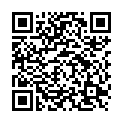|
|
|
| Module code: MEB_24_A_4.12.AEW |
|
|
2SU (2 hours per week) |
|
2 |
| Semester: 4 |
| Mandatory course: yes |
Language of instruction:
English |
Assessment:
Project Work (report)
[updated 22.01.2026]
|
MEB_24_A_4.12.AEW (P241-0434) Mechanical Engineering, Bachelor, SO 01.10.2024
, semester 4, mandatory course
Suitable for exchange students (learning agreement)
|
30 class hours (= 22.5 clock hours) over a 15-week period.
The total student study time is 60 hours (equivalent to 2 ECTS credits).
There are therefore 37.5 hours available for class preparation and follow-up work and exam preparation.
|
Recommended prerequisites (modules):
MEB_24_A_1.06.TEA Technical English for Academic Purposes
[updated 22.01.2026]
|
Recommended as prerequisite for:
|
Module coordinator:
Dr. Julia Frisch |
Lecturer:
Sebastian Barth, M.A.
[updated 22.01.2026]
|
Learning outcomes:
The modules “Technical English for Academic Purposes” and “English Academic Writing” as well as the foreign language component “Presenting in English” of the “Project in Mechanical or Process Engineering” are to be seen in context. Starting out from the required entry level B2, these modules help students to progress from level B2 to C1 in English as a foreign language.
Upon successful completion of this module, students will be able to write coherent academic texts such as a laboratory report, project report or Bachelor’s thesis. They will be able to express their ideas effectively and appropriately in academic writing, using suitable language structures, register as well as an appropriate range of vocabulary.
They will be able to research information, analyze the results critically, and cite the sources properly.
[updated 26.04.2024]
|
Module content:
• Introduction to various types of academic texts: laboratory report, project report, Bachelor’s thesis
• Structure of academic texts
• Researching information and analyzing results
• Referencing and citation conventions
• Writing process (brainstorming, drafting, revising)
• Developing paragraphs (topic sentences, linking words, etc.)
• Writing exercises
• Academic language: structures, register and vocabulary (e.g. for describing experiments)
[updated 26.04.2024]
|
Teaching methods/Media:
Teaching methods:
The learning goals will be achieved through the integrated training of the four basic skills (listening comprehension, reading comprehension, speaking and writing) supported by multimedia, as well as the revision of basic grammar and vocabulary in self-study phases.
Media:
Teaching and learning materials (print, audio, video), multimedia teaching and learning software and WBTs for specific target groups.
[updated 26.04.2024]
|
Recommended or required reading:
Sowton, Chris. 50 Steps to Improving Your Academic Writing: Study Book. Garnet Publishing, 2014.
Rosenberg, Barry J. Spring into Technical Writing for Engineers and Scientists. Addison-Wesley Educational, 2005.
Northedge, Andrew, et. al. The Good Study Guide. The Open University Worldwide, 2005.
[updated 26.04.2024]
|

